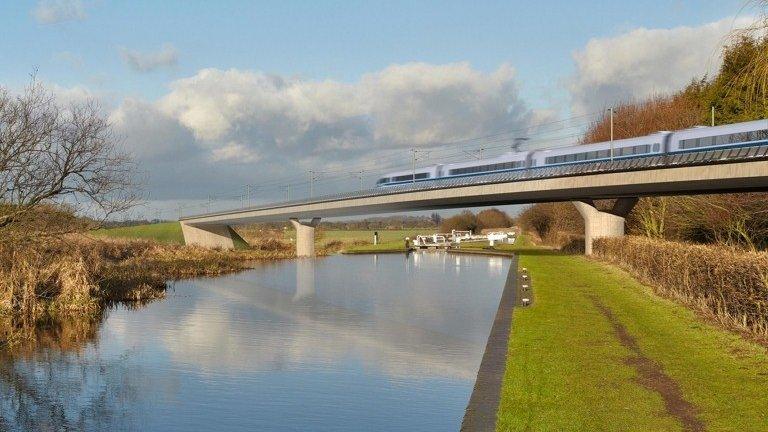HS2 Bill tackles the nitty-gritty of winners and losers
- Published
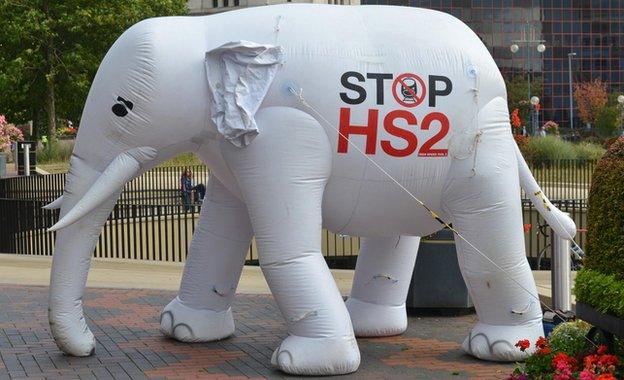
The proposed HS2 rail line has attracted a lot of opposition from locals likely to be affected
After four years of battling, it was all over in 10 minutes.
The proposed new high-speed rail line, HS2, is due to slice right through Fred Moreton's 550-acre farm near Offchurch, Warwickshire.
And last week, he finally had his chance to tell MPs on the High Speed Rail Bill Select Committee, external just how this titanic building project would upend his life.
Fred brought along slides for them to see. The thick black line is his land and all the green will be taken up by the railway.
He didn't want the line at all, he told them, but if it had to be built, he wanted it in a tunnel so it didn't destroy his business.
We were in the slightly jaded, but still grand, Committee Room Five in the House of Commons. The room is as high as it's wide, all portraits and rickety chairs with the Commons logo on the back.
Fred was up against two lawyers from HS2. The cost of such a tunnel, they explained to MPs, would be £190m. Fred told me later that the first HS2 estimate he'd been given was for £80m.
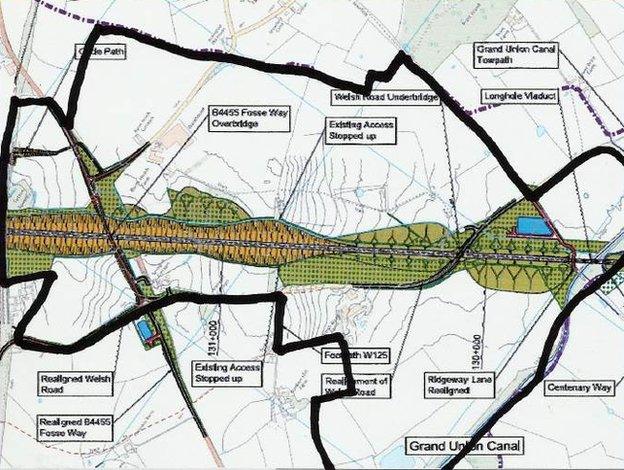
The proposed route for HS2 bisects Fred Moreton's farm
"All the details keep changing," he said.
At the back of the room, 20 or so other people, all of them affected by the proposed line, patiently waited their turn. There were plenty of quiet little "good lucks" and "you did wells" as the day wore on.
Nuts and bolts
After all the big rows, we're down to the nitty-gritty of how you actually get a gigantic, hugely contentious thing built in Britain.
A piece of legislation called a Hybrid Bill is being put before the committee of MPs. Think of it as planning permission for phase one of the line - the route between London and Birmingham.
It's an inch-by-inch summary of exactly where it will go and how it will be built.
And this is the forensic scrutiny that takes place before the final version of the Bill goes before all MPs for a vote, probably next year. If they say yes, the line seems certain to be built. If they reject it, well....
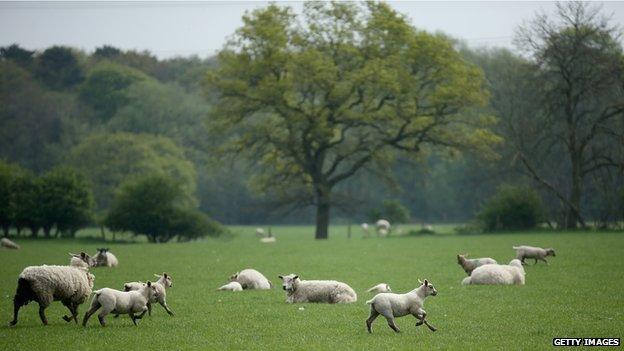
Phase two of HS2 is set to pass through this field near Knutsford, Cheshire
Forget arguments about economics and rail capacity.
This is about ordinary people, often living in peaceful villages, who are worried about how their narrow country lanes will cope with all the HGVs and diggers that could soon be appearing in their backyards.
They're worried about the school kids who walk along those lanes every day without a path to keep them safe. They're worried their businesses will go bust.
Traffic, waste, noise
The High Speed Rail Bill Select Committee is made up of six MPs, who'll eventually spend around 18 months listening to 2,000 or so people and groups directly affected by the project.
From what I saw, their attention to detail was impressive as they drilled down into the whys and wherefores of moving a path here, a lorry route there.
Every so often they go on site visits. At one point they joked with a petitioner about how good her biscuits had been when they visited her. She'd been impressed that she got her tin back afterwards.
During my brief dip into the committee process, petitioner 1126, Joanna Wilson, representing Aston le Walls Parish Council, told the MPs her colleagues just wanted to make the best of a bad situation.
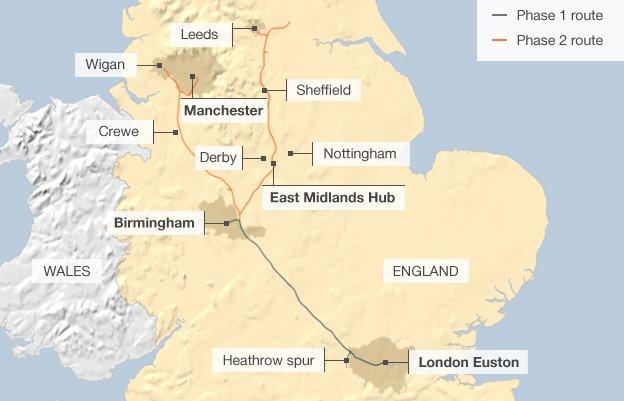
They even charged HS2 to use their village hall and used the money to set up a film club for the locals.
If the lorries are going the wrong way through the village, others wanted to know, who should they complain to? HS2 said they would establish helplines.
Petitioner 618, Ken Christy, from the village of Sulgrave in Northamptonshire, brought along nine slides to show how his bucolic existence would be spoilt.
He was worried about traffic, waste, noise.
'Forget the way it looks'
We also saw how the tracks will plough through the hamlet of Lower Thorpe Mandeville on a 200m-long viaduct.
Maurice Cole (petitioner 434) asked the committee to consider a much higher sound barrier - 4m rather than the 1.4m currently planned.
Locals don't mind having a big, ugly barrier near their village, he said. "Forget the way it looks. Everyone's biggest concern is noise."
Maurice brought along slides showing a bin lorry squeezing down the local lane. There's no room for HGVs, he said, especially on the 300m stretch that has no footpath but is frequented by children and horse riders.
To the surprise of many, HS2 agreed and said they'd look at a different route for lorries.
During my visit, everyone I asked said they were happy with the way they were treated and grateful for the chance to get their point across.
But no-one was convinced it would do much good.
Covering this story, one of the most common complaints I hear from people is about the lack of information and the lack of someone to talk to about what is actually going to happen to their homes, villages and communities.
The committee can't stop the project, but they can recommend changes - from tunnels to route alterations.
The problem is that such changes cost money and could add millions to the final bill.
Follow Richard Westcott on Twitter @BBCwestcott, external
- Published2 February 2015
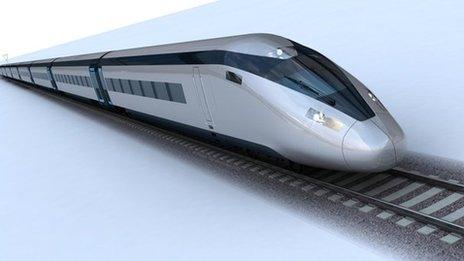
- Published29 January 2015

- Published16 January 2015
